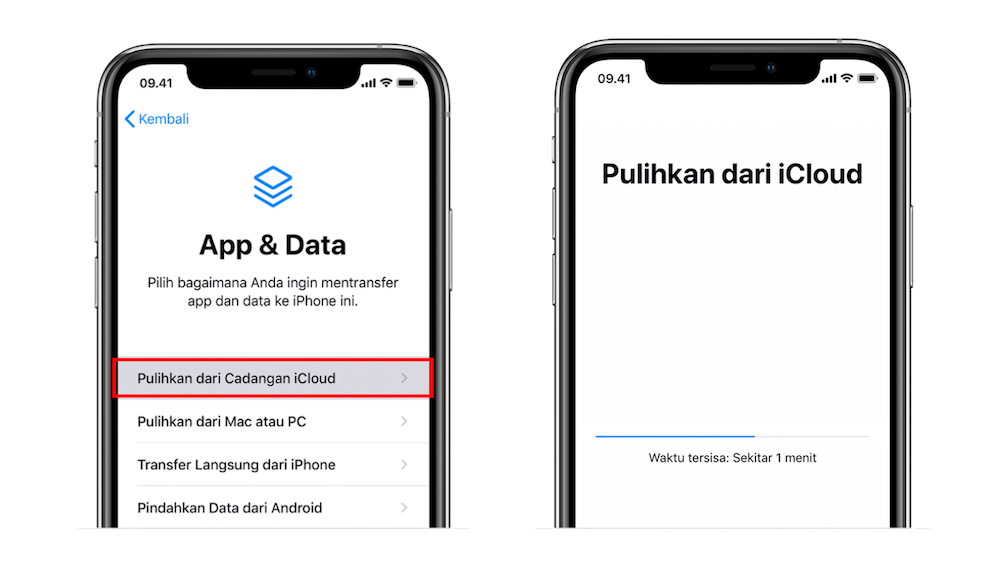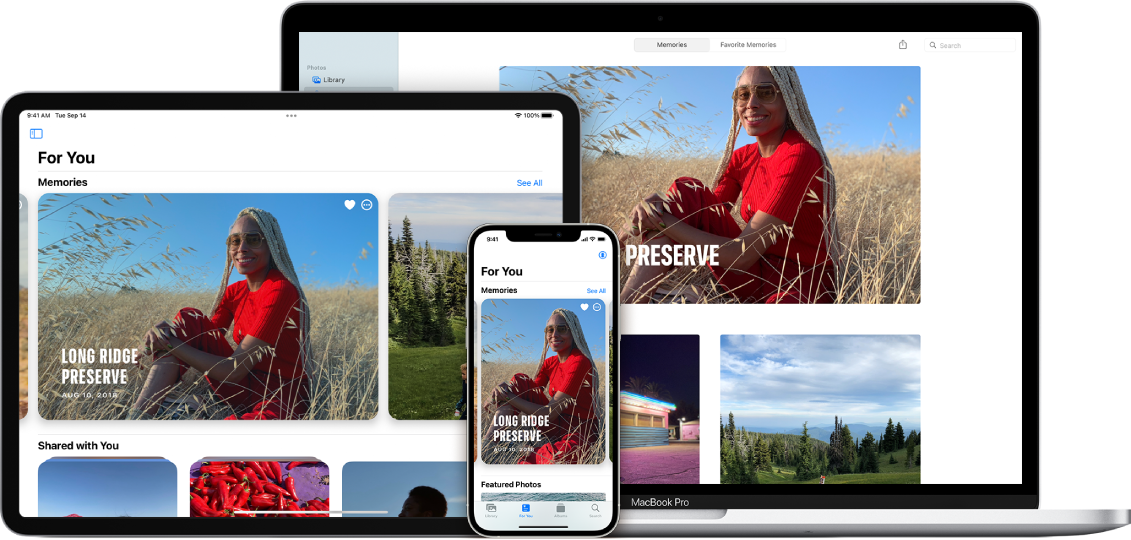Apple Store iCloud: The synergy between Apple’s app store and its cloud service is a cornerstone of the user experience. This integration offers seamless access to purchases, facilitates backups, and streamlines app management, but also presents considerations around storage and security. Understanding this relationship is key for maximizing the benefits of Apple’s ecosystem.
This article delves into the intricacies of Apple Store and iCloud integration, exploring how users can leverage iCloud’s capabilities for a smoother, more efficient, and secure app experience. We’ll cover everything from backing up purchases to managing storage space and addressing potential security concerns.
Apple Store App and iCloud Integration
The Apple Store app and iCloud services are deeply integrated, offering a seamless and efficient user experience. This integration enhances app functionality, streamlines purchases, and simplifies content management. Robust security measures protect user data throughout the process.
Seamless User Experience, Apple store icloud
The integration between the Apple Store app and iCloud allows for a smooth, uninterrupted flow in managing apps, purchases, and other digital content. Downloading apps, updating existing ones, and managing wishlists all happen within a unified ecosystem, minimizing the need for manual intervention or data transfer between separate platforms. This streamlined approach significantly improves the overall user experience.
Enhanced Apple Store App Features through iCloud
iCloud significantly boosts the Apple Store app’s functionality. For instance, iCloud’s cloud storage allows for automatic backups of purchase history and wishlists, ensuring data persistence even if a device is lost or replaced. The ability to access purchase history and wishlists across multiple Apple devices via iCloud is a key feature enhancement.
Security Measures for Shared Data
Apple employs robust security protocols to protect user data shared between the Apple Store app and iCloud. End-to-end encryption safeguards user information, ensuring only the user can access their data. This includes data encryption both in transit and at rest, along with rigorous access controls.
Using iCloud Features within the Apple Store App
Utilizing iCloud features within the Apple Store app is straightforward. To download a previously purchased app, simply navigate to your purchase history within the app. Managing wishlists involves adding items directly from the app; these are automatically synced across your devices via iCloud. Downloading purchased items is equally simple: Locate the item in your purchase history and tap to download.
iCloud Storage Options and Their Impact
Different iCloud storage plans affect how much content can be stored and accessed through the Apple Store app. Larger storage plans allow for more apps, music, and other content to be downloaded and stored. Smaller plans might require more frequent management of stored data to prevent storage limitations.
| Plan Name | Storage Capacity | Apple Store App Impact | Price |
|---|---|---|---|
| 50GB | 50 GB | Suitable for a moderate app library. May require occasional storage management. | $0.99/month |
| 200GB | 200 GB | Accommodates a larger app library and more media downloads. | $2.99/month |
| 2TB | 2 TB | Ideal for users with extensive app libraries and large media collections. | $9.99/month |
| iCloud+ (2TB) | 2 TB + Additional features | Same as 2TB plan, plus extra features like iCloud Private Relay and Hide My Email. | $9.99/month |
iCloud Backup and Apple Store Purchases
iCloud seamlessly backs up Apple Store purchases, providing a secure and convenient way to protect your digital assets. This backup ensures access to your apps and other content even if your device is lost, damaged, or replaced.
iCloud Backup Process for Apple Store Purchases
Backing up Apple Store purchases through iCloud is typically automatic. Ensure that iCloud Backup is enabled in your device’s settings. Once enabled, your app purchases, app data (if the app supports it), and other relevant information will be automatically backed up to iCloud on a regular basis.
Benefits of iCloud Backups

Source: caramesin.com
The primary benefit is data security and accessibility. Should a device malfunction or be lost, your Apple Store purchases and associated data are readily available for restoration to a new device. This prevents data loss and ensures continued access to your digital library.
Potential Issues During iCloud Backup
Insufficient iCloud storage is a common issue. A weak internet connection can also disrupt or prevent backups. In some cases, app-specific issues might prevent complete backups.
Troubleshooting iCloud Backup Problems
Ensure you have sufficient iCloud storage space. Verify a stable internet connection. Check for any app-specific issues by reviewing the app’s support documentation or contacting the app developer. Restarting your device can sometimes resolve minor glitches.
Types of Data Backed Up from the Apple Store App
The types of data backed up vary depending on the app. However, common data points include purchase history, app data (where supported by the app), and wishlist items.
- Purchase history (list of apps and other items purchased)
- App data (game progress, settings, etc., depending on the app)
- Wishlist items
iCloud Storage Management and Apple Store Downloads
Effective iCloud storage management is crucial for ensuring smooth and uninterrupted downloads from the Apple Store. Understanding your storage limits and implementing proactive strategies can prevent interruptions and maximize your Apple Store experience.
Apple Store iCloud users in Grand Forks, ND, should be aware of potential scams. Before buying used Apple devices, verify their iCloud status; check listings on sites like craigslist grand forks nd carefully. Remember, securing your Apple ID and iCloud account remains crucial to prevent data breaches and unauthorized access.
Managing iCloud Storage for Apple Store Downloads
Regularly review your iCloud storage usage. Delete unused apps, photos, and other files to free up space. Consider upgrading to a larger iCloud storage plan if necessary. Optimize photo storage by using iCloud Photo Library with optimized storage, which stores smaller versions of your photos on your device and high-resolution versions in iCloud.
Impact of iCloud Storage Limitations
Limited iCloud storage directly impacts your ability to download new apps and content from the Apple Store. If your storage is full, you will be unable to download new items until you free up space or upgrade your plan.
Optimizing iCloud Storage for Large Apple Store Libraries
For users with large Apple Store libraries, strategies like regularly reviewing and deleting unused apps, utilizing optimized photo storage, and archiving less frequently used files are crucial. Consider using external storage solutions for less critical data.
Methods of Managing Storage Space
Several methods help manage iCloud storage. Deleting unused apps and files is the most straightforward. Using optimized storage for photos and videos saves significant space. Offloading photos and videos to a computer or external drive frees up valuable iCloud storage.
Freeing Up iCloud Storage Space
Several methods can help free up iCloud storage:
- Delete unused apps
- Delete old photos and videos
- Use iCloud Photo Library with optimized storage
- Offload files to a computer or external drive
- Review and delete large files in iCloud Drive
Apple Store App Performance and iCloud’s Role
iCloud plays a vital role in the performance of the Apple Store app. The speed of app downloads, updates, and overall app responsiveness is directly influenced by iCloud’s functionality and the user’s internet connection.
iCloud’s Influence on Apple Store App Performance

Source: apple.com
iCloud’s seamless synchronization of data, including purchase history and wishlists, enhances the app’s responsiveness. However, slow synchronization due to network issues or insufficient storage can impact overall performance.
iCloud Synchronization and Download Speed
Faster internet connections generally lead to quicker downloads and updates, thanks to iCloud’s efficient data handling. However, a slow or unstable internet connection can significantly hamper download speeds and app updates.
Performance Bottlenecks Related to iCloud
Insufficient iCloud storage can lead to performance bottlenecks. A weak or unstable internet connection also slows down iCloud synchronization and impacts the Apple Store app’s ability to download and update apps quickly.
Impact of Weak Internet Connection
A weak internet connection significantly slows down iCloud synchronization, leading to delays in downloading apps and updates. It can also prevent automatic backups from completing successfully.
Illustrative Representation of iCloud and Apple Store App Interplay
Imagine a three-part diagram. The first part represents the user’s Apple device, containing the Apple Store app. The second part shows iCloud, acting as a central hub for data storage and synchronization. The third part depicts the Apple servers, from where apps and data are downloaded. Arrows illustrate the flow of data between the device, iCloud, and Apple servers.
The speed and efficiency of this data flow directly correlate to the performance of the Apple Store app. A strong internet connection and sufficient iCloud storage ensure a smooth, fast flow, while a weak connection or insufficient storage creates bottlenecks, leading to delays and performance issues.
Security Considerations for iCloud and Apple Store Data
Protecting your Apple Store data stored in iCloud requires a multi-layered security approach. This includes employing strong passwords, enabling two-factor authentication, and understanding potential security risks.
Security Protocols for iCloud and Apple Store Data
Apple employs robust security protocols, including end-to-end encryption, to protect user data. This ensures only the user with the correct credentials can access their information. Data is encrypted both in transit and at rest.
Importance of Strong Passwords and Two-Factor Authentication
Strong, unique passwords are essential. Two-factor authentication adds an extra layer of security, making it significantly harder for unauthorized individuals to access your account, even if they obtain your password.
Potential Security Risks
Phishing attempts and malware are potential risks. Weak passwords and a lack of two-factor authentication significantly increase vulnerability. Public Wi-Fi networks can also pose a security risk if not used cautiously.
Best Practices for Maintaining Security
Use strong, unique passwords. Enable two-factor authentication. Be wary of phishing attempts and suspicious emails. Avoid using public Wi-Fi for sensitive transactions. Keep your software updated with the latest security patches.
Security Checklist for Protecting Apple Store Data
To ensure the security of your Apple Store data stored on iCloud, consider the following:
- Use a strong, unique password for your Apple ID.
- Enable two-factor authentication.
- Keep your iOS devices and macOS updated with the latest software.
- Be cautious of phishing emails and suspicious websites.
- Avoid using public Wi-Fi for sensitive transactions.
- Regularly review your iCloud account activity for any unauthorized access.
Final Review: Apple Store Icloud
Ultimately, the Apple Store’s integration with iCloud represents a powerful combination for Apple users. By understanding the features, managing storage effectively, and prioritizing security measures, users can unlock the full potential of this seamless ecosystem and enjoy a streamlined, secure, and optimized app experience. Proactive management of iCloud storage and adherence to best security practices remain crucial for a positive user experience.
